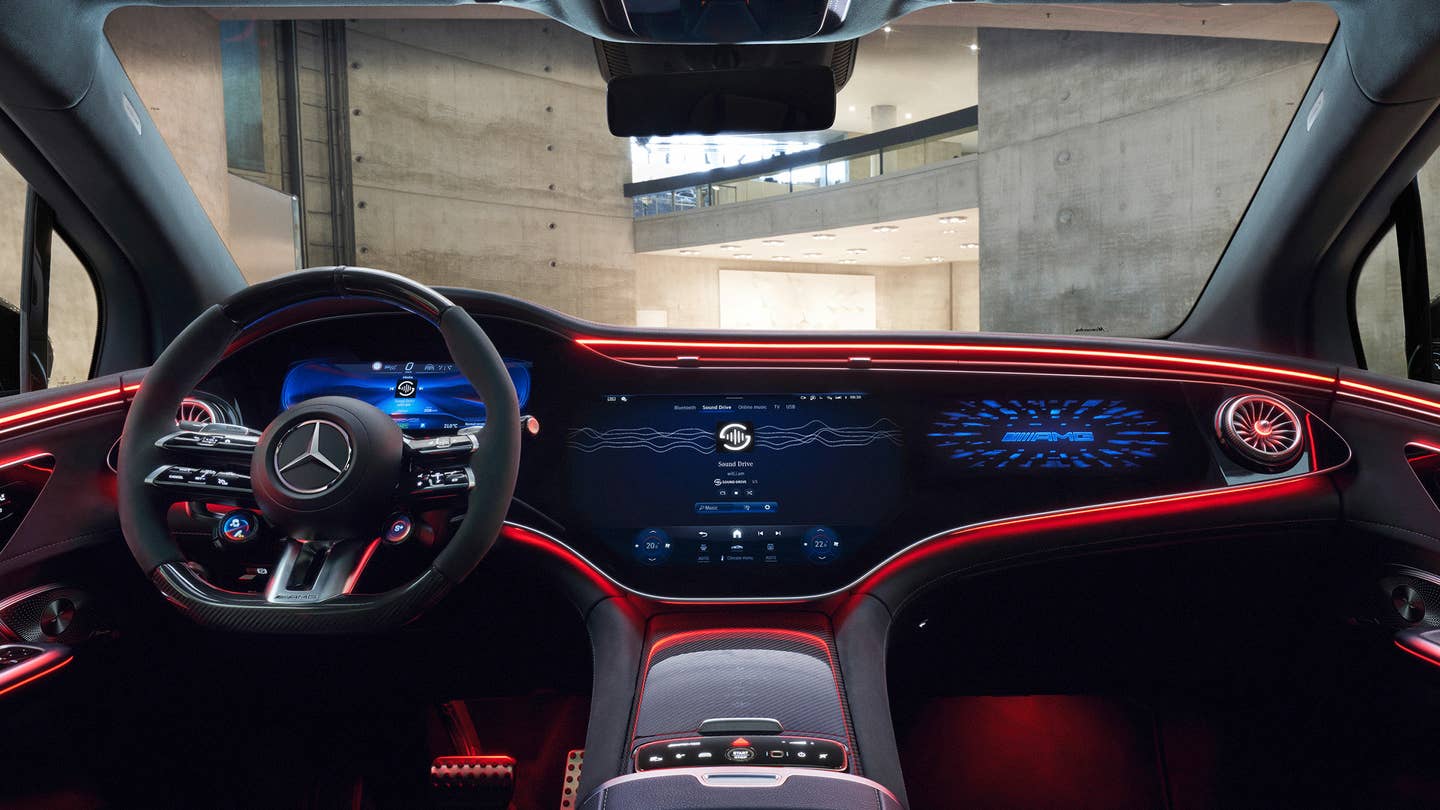Mercedes Says Customers Want to Talk to Their Car Like a Friend
Merc’s software boss says that some of its customers “just want someone to talk to.”

Trying to stay ahead or even just keep pace with the latest advances in car tech is a tough task for every automaker, but perhaps especially for legacy German luxury brands. Mercedes-Benz, BMW, and Audi were the de-facto, global standard of premium motoring for decades until a raft of new players came on the scene and started stealing market share away from them across the globe. They're each trying to find unique ways to stand out, and Mercedes' solution is perhaps one of the most creative: it wants its cars to be nice to have a chat with.
No, really. An interview with Merc's Chief Software Officer Magnus Östberg published by Top Gear leads with some surprising feedback that the automaker is taking away from its customers in Asia, which is apparently directing its development trajectory.
"Our ultimate goal with our virtual assistants is to provide a service: it's very different in different regions what that service is," Östberg told the publication. "The chattiness—just talking—is actually something that our customers in Asia want to have. They don't have a purpose, they just want someone to talk to."
Now, before anyone gets up in arms, Östberg highlights this to make the point that the brand's customers in Germany don't seem to desire the same interaction with their car's digital assistant, so it's not trying to force this on owners who aren't looking for it.
"So what is the purpose that you try to achieve?" Östberg continued. "If I, the customer wants to [change a setting in the car] I want to see if [it] understands me, the graphical interface and the actual graphical feedback, like I can read your face. It's just as important that you understand me or you're listening. That’s why we have these different moods or personas for the virtual assistant."
Mercedes' solution appears to be offering a range of assistant behaviors to tailor these experiences to expectations around the world. The team has built four "moods" into the assistant: natural, empathetic, personal, and proactive. And beyond that, the company is interested in using facial recognition and in-car vision to modulate the assistant's attitude to the driver, based on cues the system notices.
The rest of the interview is hardly encouraging for anyone who's pining for the days of simplicity. Östberg says while screens on dashboards are unlikely to get any larger for the moment, the dearth of physical buttons is just the way of the future, as Mercedes intends to play up voice control to fill those gaps. However, there is one potential silver lining, and it comes at the very end when Östberg passively throws some shade at the company's foremost competitor, after a question about subscription features.
"Our philosophy at Mercedes is that this is going to be a luxury experience," the software boss said. "That means we're not 'nickeling and diming' our customers. It's more of a holistic experience. But yes, our customers of course will have to subscribe to a package and so forth, but we believe that our customers don't want to be 'nickel and dimed' in their face. That's not what our customers are looking for."
It isn't explicitly detailed how Mercedes plans to forge on with subscription-based functions without taking on criticism for overcharging, or greediness. Even if it bundles various functions together in larger packages, that's not so much more cost-effective than BMW's approach, just less à la carte. Perhaps the in-car therapy package will be one such optional purchase on Silver Arrows products of the future. I know loneliness is a serious problem, but if you have the means to purchase a Mercedes, you can probably also afford human counseling, too.
Got tips? Send 'em to tips@thedrive.com
